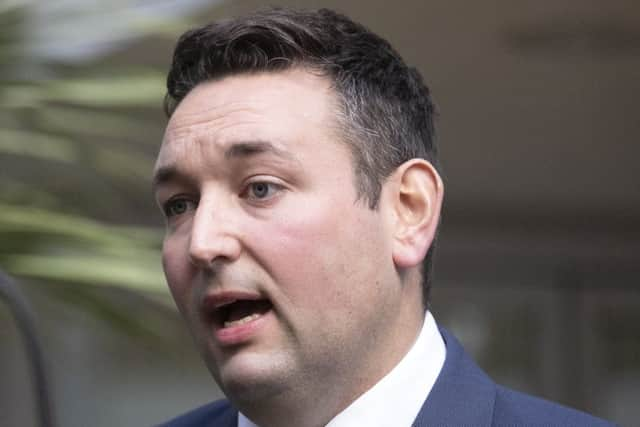Scotland’s NHS ‘financially unsustainable’ says watchdog
Increased pressure on staff to meet a rising demand for care and just two out of eight key waiting time standards being met were among a range of issues identified by Audit Scotland in its NHS in Scotland 2019 study.
It said there could be a £1.8 billion shortfall in the funding of social care by 2023-24 if changes are not made.
Advertisement
Hide AdAdvertisement
Hide AdIn addition, Audit Scotland said the ambitions set out in the Scottish Government’s 2020 vision for the health service – of providing more care closer to home with a reduction in demand for hospital services – “will not be achieved by 2020”.


Auditor General for Scotland Caroline Gardner said: “The NHS in Scotland is running too hot, with intense pressure on staff and a service model that will remain financially unsustainable without a much greater focus on health and social care integration.”
Without reform, the report said ministers have already forecast spending on health and social care could rise to £20.6 billion by 2023-24 – up from £13.4 billion in the 2018-19 budget.
The NHS budget deficit is also forecast to be “significantly larger” than the total of £116 million in 2019-20, with this expected to reach £207 million in 2021-21.
Most of this is down to NHS Lothian, which predicts a deficit of almost £90 million, the report said, while NHS Greater Glasgow and Clyde is anticipating a deficit of £61.5 million.


BMA Scotland chairman Dr Lewis Morrison said the report “overall paints a stark picture of the parlous state of our NHS.
“It is clear our NHS is seriously struggling to become financially sustainable.
“The suggestion of a £1.8 billion funding gap for 2023-24 – something we have been warning of for some time – just serves to illustrate the growing gap between demand for care and resources available to our NHS.
Advertisement
Hide AdAdvertisement
Hide Ad“On top of this, there remains a lack of a clear plan on how to address this funding gap that is clearly developing, or set out the reforms needed to prevent it developing in the first place.”
He said an “increasing” number of NHS boards were now forecasting they would be unable to balance their books, with bosses “relying more on one-off, high-risk savings”.
Dr Morrison added: “This cannot go on – if we want to continue to provide comprehensive, free at the point of delivery care for the people of Scotland, something must be done urgently.”
Conservative health spokesman Miles Briggs said Scottish Government failings had been “brutally exposed” in “another utterly damning report by independent Audit Scotland”.
He said: “It just demonstrates how 12 years of SNP distraction and relentless focus on nothing but trying to rerun a divisive independence referendum is failing to improve our NHS and failing to support those who have dedicated their careers to our NHS and improving the health of the nation.
“From the ongoing hospital building scandals to the failure to deliver the integration of health and social care services, this report makes for desperate reading.”
Liberal Democrat health spokesman Alex Cole-Hamilton was also critical, saying: “The SNP have been in charge of safeguarding our NHS for more than a decade and have shown themselves to be incapable of dealing with the day-to-day, let alone the long-term reforms.”
National performance fell for six of the eight standards in 2018-19, the Audit Scotland report said.
Advertisement
Hide AdAdvertisement
Hide AdThe only two areas where national waiting times standards were met last year were the target of having cancer patients begin receiving care within 31 days of a decision to treat them and the target of having those seeking help for drug and alcohol problems being seen within three weeks.
While Audit Scotland said health “remains the single biggest area of Government spending”, the report highlighted the “increasing pressure from rising demand and costs” and the “difficulty meeting key waiting times standards”.
It said: “Without reform, the Scottish Government predicts that there could be a £1.8 billion shortfall in the projected funding for health and social care of £18.8 billion by 2023-24.
“So far, the pace of change to address this, particularly through the integration of health and social care, has been too slow.”
Health Secretary Jeane Freeman said the report noted “positive steps” within the NHS while recognising challenges “such as increasing demand, building a sustainable workforce and the pace of change”.
She said: “To address this we have increased financial flexibility for NHS boards and our £850 million waiting time improvement plan will help address financial challenges and improve access to care – steps the Auditor General highlights positively in this report. Work to ensure people get access to health and social care services is also progressing but it needs to happen faster.”
She highlighted increased spending on the NHS in Scotland under the SNP, saying this was “part of our twin approach of investment and reform to meet increasing demand and to deliver balanced and sustainable services”.